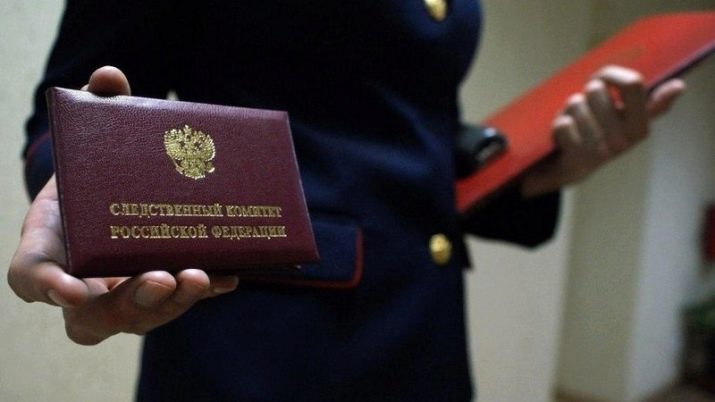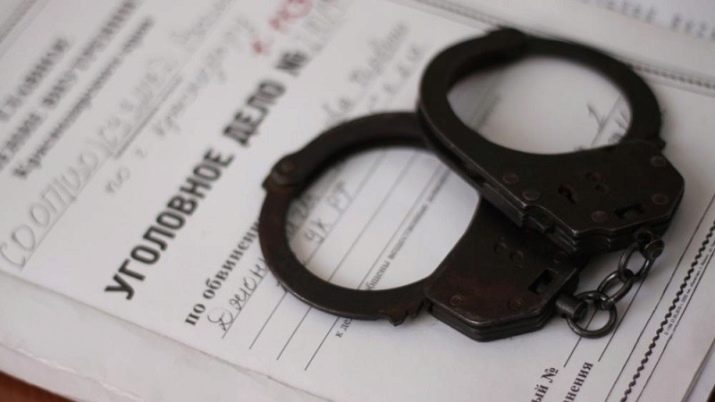An investigator is an employee of the investigative department of law enforcement agencies involved in the investigation of crimes. We will talk about the duties of the investigator, the basic requirements for his professional skills and personal qualities in our article.
History
Crime is not a new phenomenon; it exists just as much as humanity itself. We heard written sources indicating that even in Ancient China, Greece and Rome, identifications of people who were suspected of having committed crimes and their interrogations were carried out. During the time of the Roman Empire, there were even specially trained people who conducted surveillance and searches, collected evidence of guilt and systematized them so that subsequently the information received could be used at court hearings.
It is on the basis of Roman law that modern legislation is formed.

From the 17th century, increased demands were made on the profession of an investigator. This person should have knowledge in the field of medicine, handwriting recognition, as well as an understanding of the mechanism of action of poisons on the body. By the end of the XIX century. the newest methods for solving crimes appeared - fingerprinting, physiognomy, and forensics stood out in a separate scientific direction.
Nowadays, from the position of the Russian Criminal Procedure Code, the investigator is the prosecutor, his powers include conducting investigative actions.
This specialist has the right to:
- initiate criminal proceedings in strict accordance with the procedure established by law;
- work on them;
- solve operational issues that arose during the investigation of a crime, except in cases where it is necessary to obtain a court decision;
- engage in appeal of court cases with a view to their further review;
- act as a prosecutor in a lawsuit.
In order for the case to be comprehensive and fair, the investigator should not only look for evidence of the suspect’s guilt, but also try to find out about factors that may indicate his innocence or allow mitigation of punishment.
The profession of an investigator is very important these days; he has a high moral responsibility when a specialist has no right to make a mistake. That is why he must approach every investigation with all care. A frivolous attitude to work can lead to the fact that innocent people will be punished, and real criminals will remain at large and continue their dark affairs.

Pros and cons of the profession
The profession of an investigator has its advantages and disadvantages. On the one hand, this is a popular specialty that is relevant at all times, and good specialists are worth its weight in gold. The work of the investigator is well paid by the state and in society, representatives of this profession are respected and honored. Investigator’s salary level depends on the organization in which he works. The highest payments are made by the employees of the Investigative Committee - here the investigators are paid from 45 to 80 thousand rubles, the level of payment at the prosecutor’s office is slightly lower - there they get 40-70 thousand, the lowest paid are the work of the FSB investigator and the police - their salaries vary from 30 to 45 thousand rubles.
However, these values can be called rather arbitrary, since the totals depend on professional experience. So, young specialists receive about 25-30 thousand rubles, and additional payments for seniority reach 70%. Holders of high ranks add from 15 to 30% to the salary, incentive allowances are due to specialists working in special conditions or with closed documents.
Investigators enjoy a number of privileges from the state:
- additional vacation period;
- early retirement with mandatory benefits;
- the opportunity to undergo treatment in sanatoriums and health resorts at the expense of the state budget;
- free transport
- supplementary health insurance;
- enrollment of children in kindergarten bypassing the queue;
- compensation for cash costs for rental housing.
Within the framework of the specialty, the employee has the opportunity to help people in distress and to comprehensively develop as a specialist. In the course of working with various databases, related experts and documentation, the investigator daily increases professionalism and hones skills.
However, this profession has significant limitations. First of all, this is an irregular work schedule, as well as strong moral and physical stress.. This leads to the fact that a rather high staff turnover takes place in law enforcement agencies, and not everyone who becomes an investigator lingers on this position for a long time.

Comparison with the interrogator
Not only ordinary Russians, far from the law, but even novice lawyers often confuse the work of the investigator and interrogator. Let’s take a closer look at the similarities and differences between these professions. An interrogator is an employee who belongs to the bodies of inquiry. In the vast majority of cases, these are employees of the VD, that is, police officers. This category also includes employees of the border service, the FSB, the tax police, as well as fire control, commanders of military units and other structures.
An investigator is a specialist responsible for a preliminary investigation in a criminal case. The terms of reference of this person are much larger than those of the interrogating officer, among them one can identify:
- the right to initiate proceedings;
- conducting search and other measures necessary for the interests of the investigation;
- the formation of special instructions for bodies of inquiry, which they must necessarily take to work.
Based on the above definitions, it may seem that the interrogator in the service hierarchy is slightly lower than the investigator - but this is not so. Investigators, in accordance with the law of the Russian Federation, have the right to investigate 68 crimes, and this is a rather large circle of work. It is these specialists who undertake the basic work with the population, carry out explanatory actions and collect data within the framework of the current legislation. In many respects, they exempt investigators from the need to do such “small” things as stealing bags and mobile phones so that investigators can calmly deal with more serious problems that could pose a threat to the safety of citizens' lives.

By the nature of his service, the investigator has the opportunity to interact with the interrogating officer, ask him for help and even issue separate orders within the framework of the ongoing investigation.
But this does not mean at all that the interrogating officer is subordinate to the investigator, since the interrogating officer has the right to do business independently, without involving the Investigative Committee. In fact, both of these specialists have the right to conduct comprehensive checks, collect evidence and obtain expert data.
The difference in the activities of the investigator and the inquirer is as follows:
- the range of cases they conduct is different - investigators deal with administrative and inter-criminal matters, and investigators deal only with those that have an important role in ensuring the safety of citizens;
- the investigator has the right to transfer to the investigators the preparation and conduct of certain activities that require too much time, including collecting data on certain areas of the investigation;
- the interrogator does not have the opportunity to deal with the case of the investigator and vice versa, but they can work on the same crime in tandem;
- the investigator acts independently, he can initiate proceedings himself, the interrogating officer must apply for permission to higher authorities;
- the investigator can independently close or suspend the case, the inquiry officer does not have such an opportunity.
Obviously, the differences between the functional duties and the powers of the investigator and the inquirer are great, but meanwhile they do a very difficult job together. If all that the interrogator usually does is given to the investigator for development, he will simply lose a lot of time solving small issues and as a result lose the thread of his own case, which is of great importance for public order.

Kinds
In the modern Russian Federation, the profession of an investigator is represented in several government agencies: in the UK, the FSB, as well as in the Ministry of Internal Affairs, the prosecutor's office, including the military, in the GU for monitoring the circulation of narcotic drugs as part of the Russian Ministry of Internal Affairs. Their powers may vary depending on the particulars of the case being investigated.
In accordance with the nature of the work performed, the functions of the employee vary. Accordingly, investigators can deal with various issues.
- Crime investigation. This specialist is primarily engaged in analytical activities. He carefully studies the eyewitness survey protocols, collected evidence, and forensic evidence. In addition, he takes an active part in the interrogation of persons suspected of committing a crime. The specialist opens a criminal case and submits it to the court after collecting evidence.
- Operations Management. Usually this investigator acts in the office, his subordinates, field investigators, carry out field trips.It is they who account for all the chases, as well as shootouts and other types of activity, which are so familiar to us from the series about police workdays.
The head of the department of operative agents coordinates their activities and draws up reports.

Job responsibilities
All the work of the investigator is subject to a single goal - the disclosure of crimes committed. Based on this task and job description, an employee of the investigative unit performs the following duties:
- accepts a statement of the crime;
- initiates a criminal case in strict accordance with the procedure established by law;
- performs investigative actions: interviews witnesses, examines the crime scene, collects evidence, analyzes the collected data;
- puts forward versions of what happened;
- defines the circle of suspected persons and conducts their development;
- seeks evidence of guilt;
- conducts interrogations;
- works with documentary evidence and examinations;
- compiles investigation reports;
- transfers information to the judiciary.

Requirements
Skills
An investigator is a person who heads the investigative-operational group, directs and coordinates its activities. Investigators interact with other specialists (forensic experts, examiners, doctors) and organize their activities. The work of the investigator is to prove the guilt of the suspect or to decide on his innocence. This specialist should be well versed in the legal legislation of the Russian Federation, while possessing comprehensive knowledge and skills. If, for example, the legal adviser of a company can understand only civil, banking or joint-stock law, then the investigator should have knowledge in all areas.
Productive activity is impossible without knowledge of psychology and logic. It so happens that the suspects and witnesses give conflicting testimonies, get confused in the descriptions, so the investigator has to build a chain of reasoning in order to identify the truth. The investigator must have the skills of a forensic expert in order to seize evidence and collect fingerprints.
In addition, any investigator should have the skills to maintain documentation, prepare the necessary reports and submit them to the courts. And of course, for the investigator, even the “cabinet”, excellent physical training and weapons skills are important.

Personal qualities
Many believe that an investigator is an exclusively male profession. But this is not so: girls, like young people, have every chance of becoming a good investigator if they have a “clean” biography and the necessary personal qualities. For a candidate for the position, the absence of a criminal record and mental illness, as well as good health, are important.
Among the most important personal qualities that are required in the work, there are:
- full self-control;
- emotional stability;
- mental and psychological composure;
- erudition;
- attentiveness;
- scrupulousness;
- patience;
- communication skills with people;
- knowledge of human behavioral psychology;
- the ability to quickly assess the situation and make instant decisions;
- analytical thinking, the ability to compare data and draw conclusions based on them;
- mental and physical endurance;
- Willingness to irregular and hard work.

Training and career
An investigator is a specialist with a higher legal education. To get this profession, you must enter the criminal investigation department and successfully complete the training. Depending on the specialty acquired and majors, the investigator will investigate criminal cases or work in the field of copyright and intellectual property protection.
It should be noted that graduation does not mean that the verification of compliance with the post at the final exams will end.Each year, this employee must pass exams on firearms, hand-to-hand combat and physical fitness (running, pull-ups, and push-ups). Therefore, throughout the year, the investigator must maintain himself in good shape - otherwise serious problems may arise during the re-examination.
If we talk about the career ladder, then in the state structure it has a typical form:
- assistant investigator;
- investigator;
- senior investigator;
- investigator for particularly important cases;
- department head.
Further career advancement involves the transfer to leadership positions. In addition, in large cities today, private investigation is developing everywhere, so any investigator can, if desired, become a detective. To work in a more relaxed mode, the investigator can always go to the bar or become a lawyer of the enterprise. A qualified specialist will always find application for the knowledge and skills acquired in the public and private spheres.
But a candidate for such a position needs to be prepared for the fact that he will have to work hard and devote himself completely to it, often to the detriment of his personal life. Otherwise, to achieve any success in this matter is impossible.












